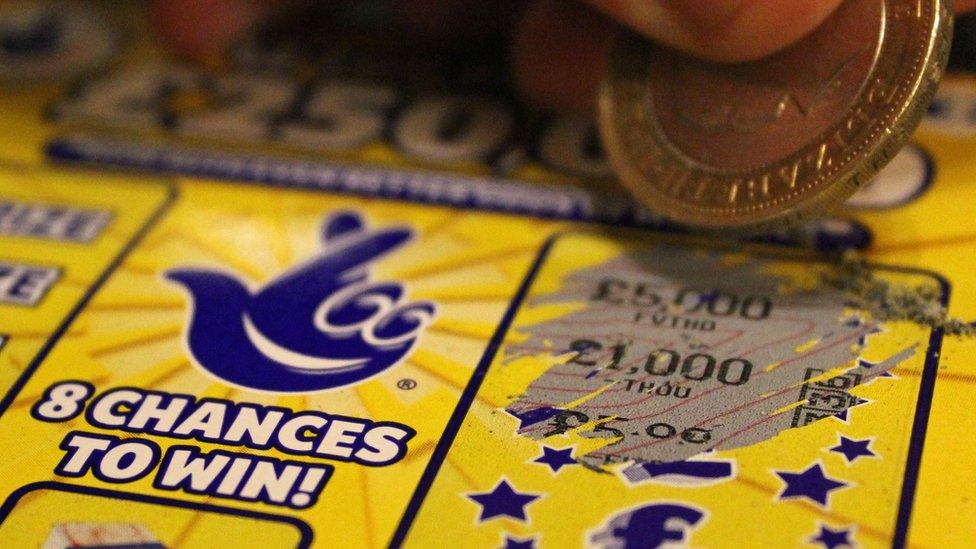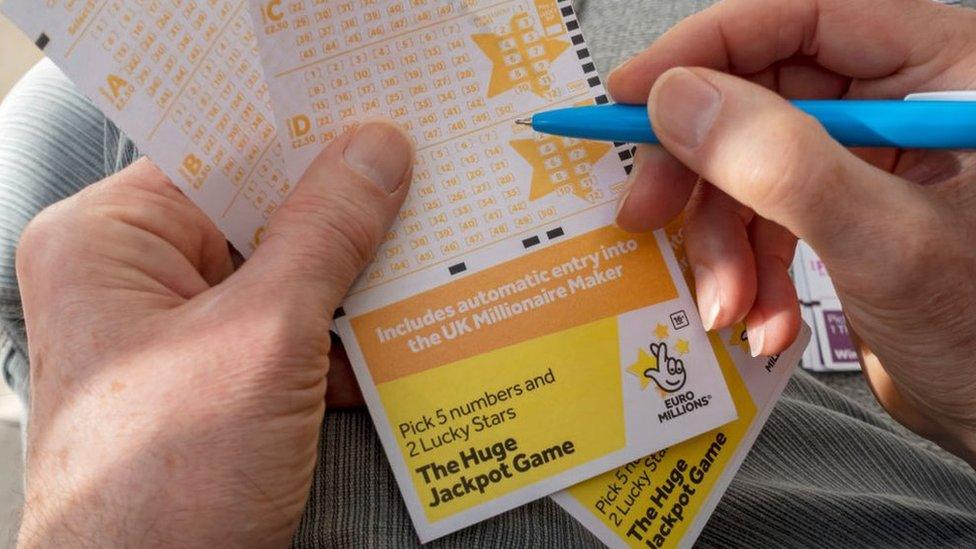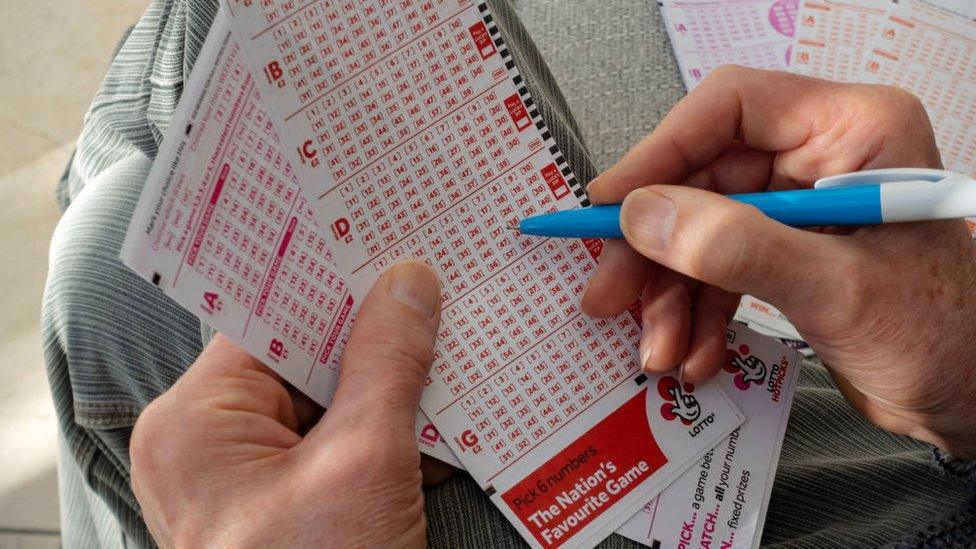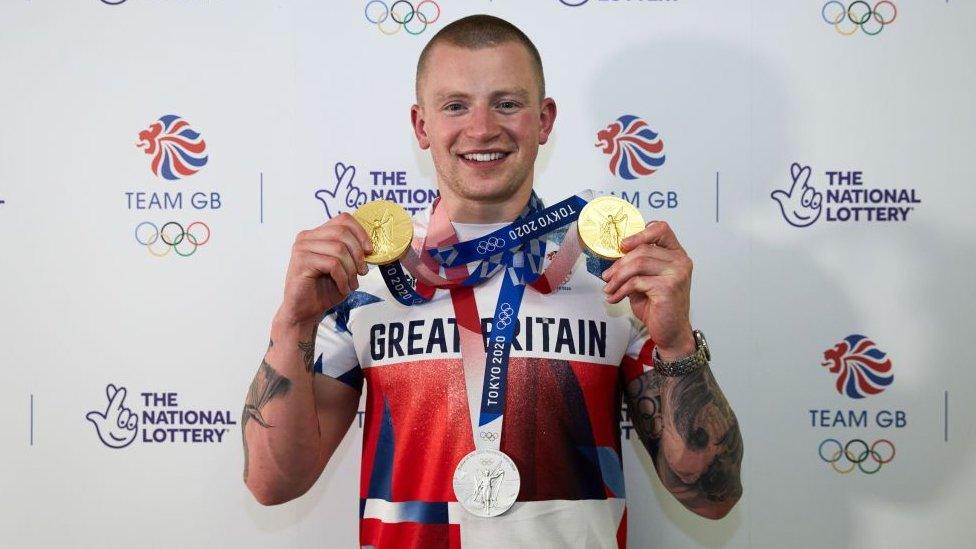Scratch card sales fall as cost of living rises
- Published

People are buying fewer scratch cards than before the pandemic as living costs soar, the boss of Camelot has said.
Nigel Railton, chief executive of the outgoing UK National Lottery operator, said there had been a "slight bubble" around scratch cards during the pandemic which has now "reversed".
It came as Camelot revealed annual sales dropped by £283.2m to £8.1bn.
The firm said it was seeing signs that players had "tightened their belts".
Camelot, which has run the National Lottery since it was launched, recently started legal action against the Gambling Commission after losing out on the next licence.
Rival Allwyn was selected as the preferred applicant for the lottery's next licence, which starts in 2024.
Camelot said its sales decline for the year ending 31 March was primarily driven by a £240m fall in sales of National Lottery Instants.
It blamed this on the lifting of lockdown restrictions, which it said led to "greater competition for people's attention and spend", as well as "growing economic uncertainty".
The cost of living crisis had slowed down the retail recovery as "consumers tightened their belts", Camelot said.
Change in buying behaviour
Mr Railton told the BBC's Today programme the company had seen a shift in consumer behaviour following the pandemic.
"There was a slight bubble around scratch cards and games in retail during Covid and that reversed, and also because we have 44,000 retailers, we saw a change in people's buying behaviour," he said.
"So scratch cards decreased by a couple of 100 million [pounds] in the year."
He said sales of scratch cards are now "well below" pre-pandemic levels.
Lazaros Gonidis, a psychology lecturer at the University of Kent, said there could be a range of factors driving the fall in scratch card sales.
"We do see that in an economic downturn, people have less spare cash and so they think twice about picking up scratch cards," he told the BBC.
"But it's also true that other people might turn to gambling in the hope of improving their personal financial situation. It could be that they're doing this more online, rather than buying scratch cards in stores," he added.
"It's a complex picture."

In March, the Gambling Commission announced Allwyn Entertainment Ltd as its preferred applicant for the National Lottery's next licence.
The next month, Camelot said it was taking legal action to challenge the decision.
Mr Railton told the BBC he believed the regulator had "got the decision badly wrong".
But the Gambling Commission said it had run a "fair and robust" competition.
The National Lottery is one of the world's largest lotteries and has raised more than £45bn for 660,000 causes across the UK.
It has also played a part in funding training and facilities over the past three decades for Great Britain's Olympic and Paralympic athletes.
While not being picked as the preferred applicant for the next licence, Camelot was named as the "reserve applicant".
Related topics
- Published1 April 2022

- Published15 March 2022
